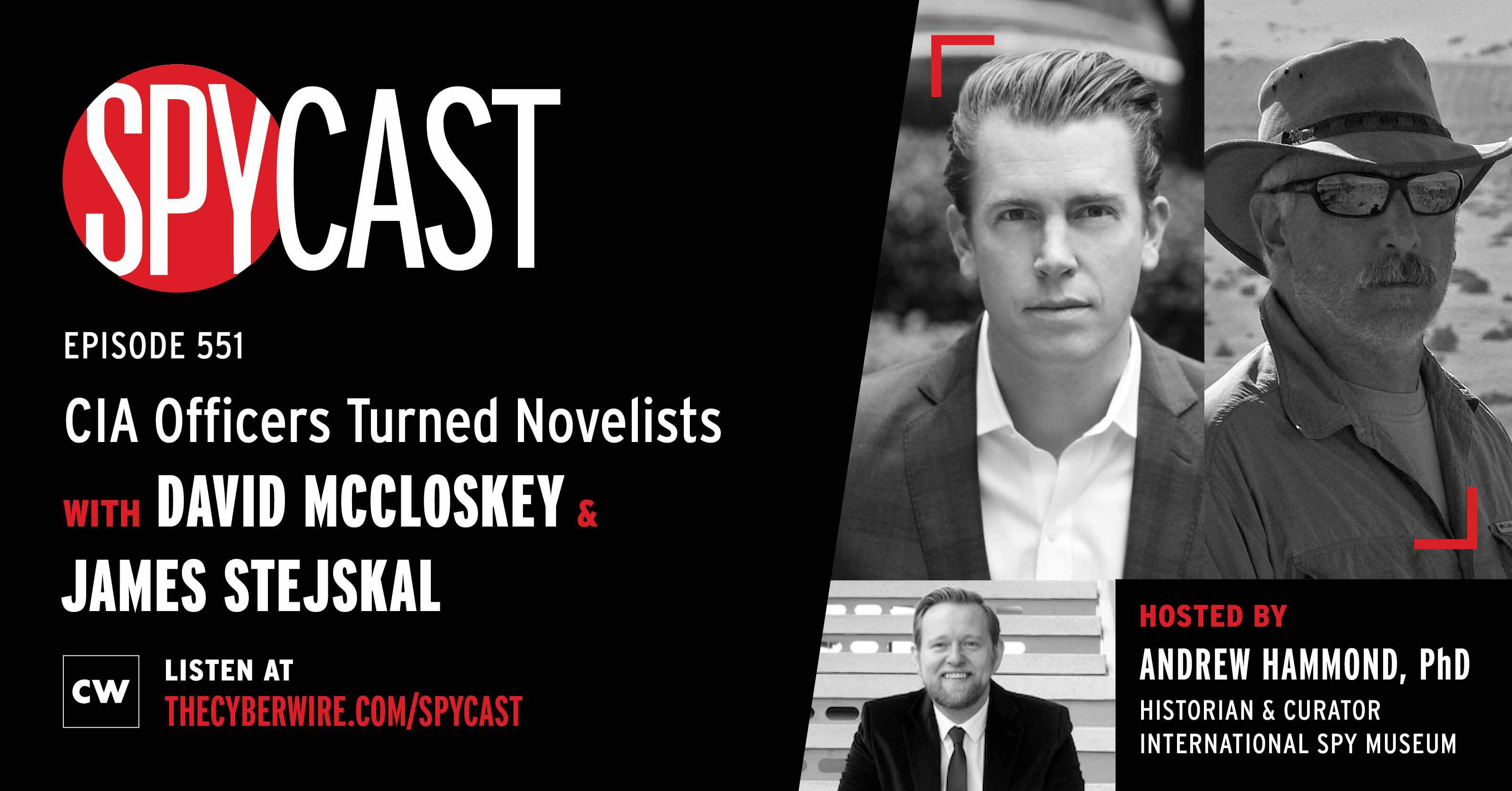
“CIA Officers Turned Authors” – with David McCloskey & James Stejskal
Summary
David McCloskey (Twitter; Website) and James Stejskal (Twitter; LinkedIn) join Andrew to discuss writing about espionage. They are both former intelligence officers.
What You’ll Learn
Intelligence
- What it is like writing spy fiction as a former practitioner
- How fact informs fiction
- Writing as a former analyst compared to as a former operator (James)
- Reactions by the intelligence community to practitioners-turned-authors
Reflections
- The heaven and hell of being an author
- The process of getting a process
And much, much more…
Episode Notes
Hear two intelligence formers discuss life as current novelists.
Where does fact end, and fiction begin when you are a former CIA officer writing fiction? What parts of your own story bleed into the novel? Are the characters composites of people you knew in your line of work or are they entirely fictional?
To answer these questions and more, this week, I sat down with David McCloskey, former CIA analyst and author of Damascus Station, a book David Petraeus described as “the best spy novel I have ever read,” and James Stejskal, author of Appointment in Tehran, which has been called “a textbook clandestine operation involving…US Army Special Forces and a clandestine CIA Case Officer,” which James would know something about, since he was both.
And…
Spy fiction received quite the blow in the space of a 6-month period (Dec 2020-May 2021) which saw the passing of both John Le Carre and Jason Matthews, two formers who served in British and American intelligence. Le Carre was in MI5 and MI6 while Matthews had a long career in the CIA. David and James join a distinguished cast of formers who became novelists, including Ian Fleming, Graham Greene and Dame Stella Rimington.
Quote of the Week
"There are far more edits on, short articles I wrote that weren't even going to the president than on the book, so your writing is being critiqued at all levels. I I think when I did write for the PDB [Presidential Daily Brief], I don't think I'm making this up, I believe it was 9 or 10 layers of review. You could probably argue that sometimes that makes it worse, but you have to be able at all stages to roll with the punches and to write and to try to make things very clear." – David McCloskey
Resources
Headline Resources
- Damascus Station, D. McCloskey (2021)
- Appointment in Tehran, J. Stejskal (2021)
Andrew’s Recommendation
- The Looking Glass War, J. Le Carre (1965)
- Le Carre doubles down on disabusing the public’s romanticization of intelligence
*SpyCasts*
- “Snake Eaters, Detachment A, CIA” – James Stejskal (2022)
- “American Spy” – Lauren Wilkinson (2021)
- “Red Widow” – Alma Katsu (2021)
- “American Traitor” – Brad Taylor (2021)
- “The Evolution of Spy Fiction” - Wesley Wark (2011)
Beginner Resources
- 15 Best Espionage Novels, M. Warwick, Mal Warwick On Books (2022) [article]
- Novelists Who Became Spies, C. Cumming, Crime Reads (2019) [article]
- Best Spy Novels According to a Spy, A. Katsu, Crime Reads (2021) [article]
Books
- Missions of the SOE and OSS in WWII, J. Stejskal (Casemate, 2021)
- Special Forces Berlin, J. Stejskal (Casemate, 2017)
- On Writing, S. King (Scribner, 2010)
- Spy Fiction, Spy Films & Real Intelligence, W. Wark (Routledge, 1991)
Articles
- Nine Examples of Spy Fiction Books, Masterclass (2021)
- How to Write a Spy Thriller, Masterclass (2021)
- How End of Cold War Changed Spy Fiction, J. Ciabattari, BBC Culture (2014)
Videos
- All the Old Knives, O. Steinhauer, SPY (2022)
- Spy Writing in the Real World, Hayden Center (2021)
- The Spy Writers You Love to Read, SPY (2020)
Primary Sources
- American Observer, CIA (1970)
- Barry Farber Show, CIA (1970)
*Wildcard Resource*
- The Riddle of the Sands, E. Childers (1903)
- An early spy novel that presaged the anti-German “spy fever” that struck allied countries before and during WWI



